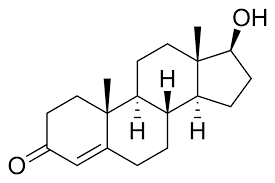
Understanding Creatine and Male Fertility
Share
Creatine is one of the most popular supplements in the fitness world. It’s well-known for improving strength, performance, and muscle growth. But some people worry: can creatine affect male fertility? Let’s break down the facts and clear up the confusion.
What Is Creatine?
Creatine is a natural substance found in your muscles and brain. Your body makes it from amino acids, and you also get it from foods like red meat and fish. In supplement form, creatine is usually taken as creatine monohydrate to improve exercise performance.
When you take creatine, it helps your muscles produce energy, especially during high-intensity workouts like weightlifting or sprinting. That’s why athletes and gym-goers often use it to build strength and muscle.
The Concern: Does Creatine Harm Fertility?
There’s a common fear that taking creatine might lower testosterone levels, hurt sperm quality, or reduce fertility in men. These worries often come from confusion with other muscle-building substances like anabolic steroids—which are known to impact hormones negatively.
However, creatine is not a steroid, and research shows that it does not interfere with natural testosterone production or sperm health when used correctly.
What Does the Science Say?
According to a 2025 review published in the Journal of the International Society of Sports Nutrition, there is no scientific evidence that creatine harms male fertility. The authors explain that many fears are based on myths or low-quality studies that looked at multi-ingredient supplements, not creatine alone.
In fact, clinical studies examining creatine supplementation found:
- No drop in testosterone levels
- No negative effect on sperm count or quality
- No harm to reproductive organs
These findings are based on healthy men taking recommended doses, usually 3–5 grams per day.
Where Did the Misconception Come From?
Some early concerns about fertility may have come from:
- Studies involving bodybuilding supplements that contained other substances like prohormones or banned compounds.
- Confusion between creatine and steroids, which are very different in how they affect the body.
- Isolated animal studies that don’t translate well to humans.
It’s important to look at well-controlled human studies when evaluating the safety of any supplement.
Can Creatine Actually Support Fertility?
While creatine doesn’t directly improve fertility, it may support overall health—which is linked to reproductive health. For example:
- Creatine helps maintain muscle mass and energy, especially in older adults.
- It may improve brain function and cellular energy, which are important for general well-being.
- It helps with exercise performance, encouraging a more active lifestyle—something known to support hormone health and better sperm quality.
However, creatine is not a fertility supplement, and it’s not intended to treat any fertility issues.
Are There Any Risks?
Creatine is one of the most studied supplements and is considered very safe for healthy people. Minor side effects like water retention or bloating may occur, especially during the initial "loading phase" (20 grams/day for 5–7 days), but they usually go away.
To stay safe:
- Stick to 3–5 grams per day after the loading phase.
- Stay hydrated, as creatine pulls water into your muscles.
- Talk to a doctor before starting creatine if you have kidney issues or other health conditions.
Final Thoughts: Creatine and Fertility Can Coexist
If you’re a man thinking about fathering a child and wondering if creatine is safe, the answer is yes—as long as you take it responsibly. There's no evidence that creatine harms fertility or hormone levels in men.
So, if you’re using creatine to boost your workouts or maintain muscle mass, you can continue with confidence. Just remember: a healthy lifestyle, balanced diet, regular exercise, and avoiding harmful habits (like smoking or heavy alcohol use) are still the most important factors for maintaining fertility.
